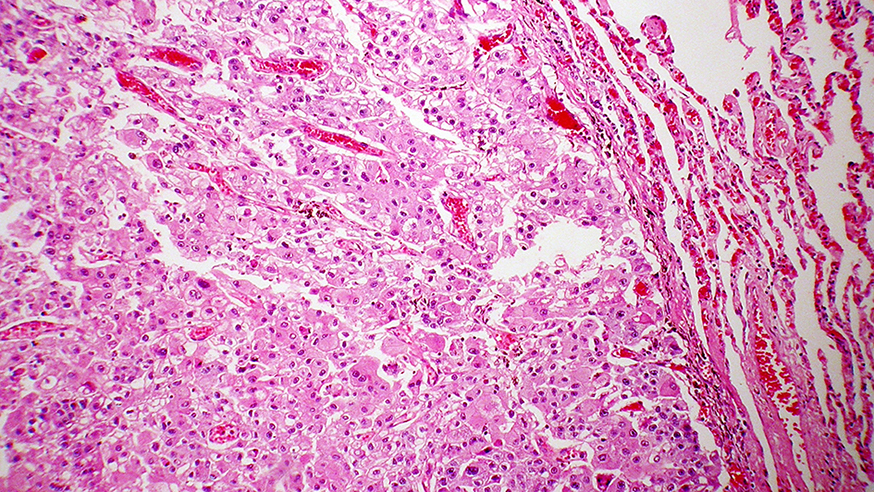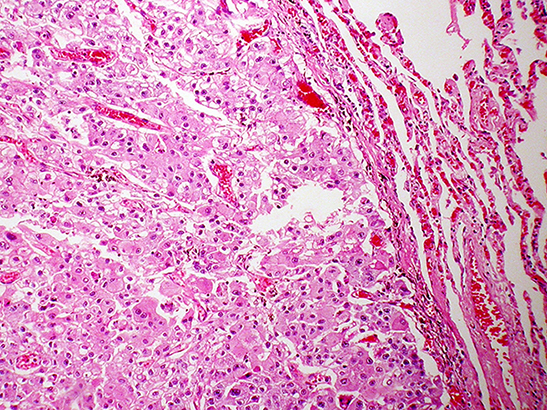
Metastatic hepatocellular carcinoma (photo: Yale Rosen (CC BY-SA 2.0))
Blocking a single faulty molecule in a biological process that drives the growth of advanced liver cancers could offer a new way to treat the disease, researchers have found.
An international team of scientists led by researchers from The Institute of Cancer Research, London, has discovered that a type of genetic molecule when activated boosts the growth of liver cancer cells.
The researchers said that this new understanding of the process that drives growth in a certain type of liver cancer could offer a “promising target” for new drugs to combat the disease. Such a targeted approach could also avoid the toxicity related to conventional treatments.
The study was funded among others by a Marie Curie Career Integration Grant from the European Union and the ICR Clinician Scientist Fellowship programme.
There are two main forms of liver cancer: hepatocellular carcinoma and cholangiocarcinoma. Few drugs are available for either and outcomes remain extremely poor, so new treatments are desperately needed.
Better understanding is key
A chemical signalling process called the Wnt pathway is active in some liver cancers and helps accelerate their growth.
New treatments have been developed to block this pathway, but a better understanding of how it works could allow scientists to create more tailored and less toxic treatments.
Scientists are particularly interested in how this pathway interacts with single strands of RNA, which are thought to be key to understanding what encourages cancers to grow.
In this new study, published in the journal Gut, researchers focused on a RNA molecule called uc.158-, which they found is activated by the Wnt pathway to drive cancer cell growth.
Their experiments showed that high expression of uc.158- could distinguish liver cancers driven by the Wnt pathway from normal liver cells, as well as from other liver cancers which are not Wnt-dependent. These findings were confirmed in mice and rat models and in human samples of cancers of the liver and bile ducts.
While uc.158- is not activated in normal human liver cells, in cancer cells it is switched on upon activation of the Wnt pathway.
A possible new drug target
The RNA molecule uc.158- is known as a transcribed ultra-conserved region (T-UCR) — a type of RNA that has sections which appear very similar between species, but does not encode for proteins.
The team’s results provide the first evidence that T-UCRs can depend on Wnt signalling to be activated.
Finding an alternative, intermediate step in this cancer-driving pathway could allow scientists to design new and more selective drugs.
Dr Chiara Braconi, principal investigator of the study, said: “Ultraconserved regions have been considered a 'junk' and useless part of our genome for many years. However, nature has put mechanisms in place to conserve these genes across species, suggesting that they might be essential for the normal function of the cells.
“We have observed that the ultraconserved RNA uc.158- is deregulated in response to Wnt pathway only in cancer cells, opening the way for more specific and targeted treatments.
“This is the first step for the identification of potential novel therapeutics and more investigation is needed to address the feasibility of this kind of treatment. However, it helps us to better understand how biliary and liver cancers develop and progress so that we can finally tackle the Achilles’ heel of these aggressive tumours.”
